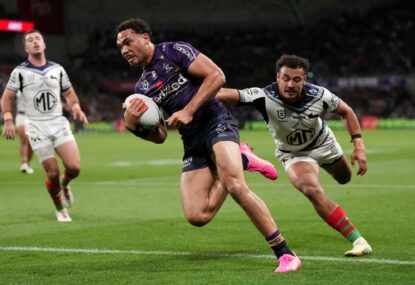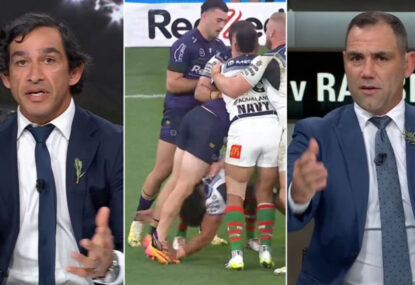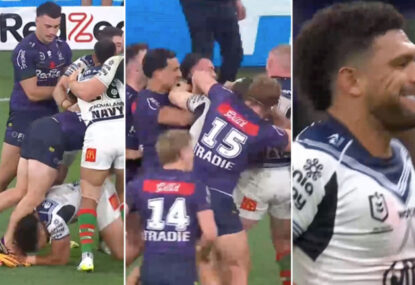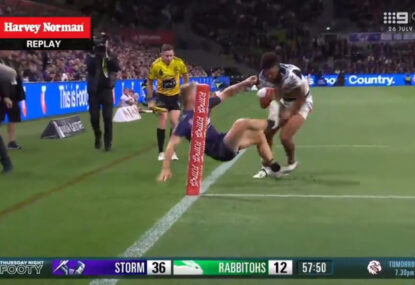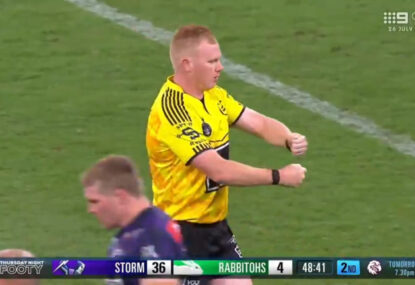Yes, we’re in a pandemic and, yes, the NRL has had a tough enough time fielding a team from New Zealand this year, but so long as you’re not new to expansion think pieces, all this article will require is a slightly more elevated suspension of disbelief.
In 2014, when the Toronto Wolfpack consortium applied to join League 1, which is the United Kingdom’s third tier of professional rugby league, the first force of pressure was applied to the NRL to step up its game or risk relinquishing its status as the sport’s pre-eminent competition.
Rugby league was expanding into North America – the sport’s long-coveted next frontier – and the Rugby Football League and its Super League had arrived first.
It is entirely possible none of this crossed the minds of the Australian Rugby League Commission (ARLC) at the time. December 2013 had seen the founding of the Papua New Guinea Hunters, which have since been competing in the Queensland Cup.
By all reports the Hunters have been an excellent addition to Australian rugby league’s second tier, winning the Queensland Cup in 2017. However, unfortunately for Papua New Guinea and any other Pacific Island nation with its eyes on an NRL bid, the UK has changed the game.
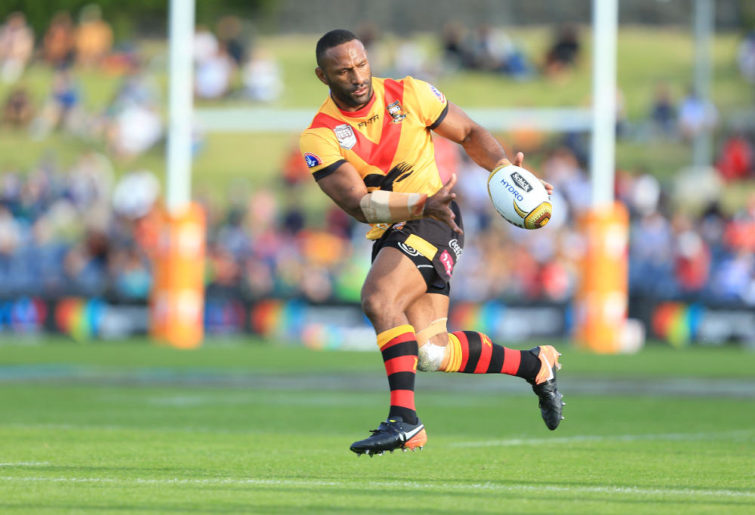
PNG Hunters (Image: NRL)
Whether the ARLC likes it or not, North America is the new battleground for rugby league, and the NRL must soon take up arms or risk relegation to a second-class league.
Fortunately the NRL has a ready-made in: Hawaii.
Let’s pretend a group of ten businessmen consisting of both Americans and Australians has come together to pay the expansion fees associated with a pathway to joining the NRL.
This shouldn’t be too difficult to believe, as it’s exactly how Toronto was formed, with each of the group’s members paying CAD$500,000 (A$531,000) to start out in League 1.
With direct flights between Australia and Honolulu, which would presumably be the home of a Hawaiian NRL team, this club could begin playing in Australia’s second tier, where, like Toronto, it could iron out its logistical kinks, such as covering travel and accommodation expenses for visiting teams.
These stipulations were a condition Toronto agreed to prior to joining League 1. It helped facilitate them through bringing Air Transat on board as its major sponsor. Come on down, Hawaiian Airlines.
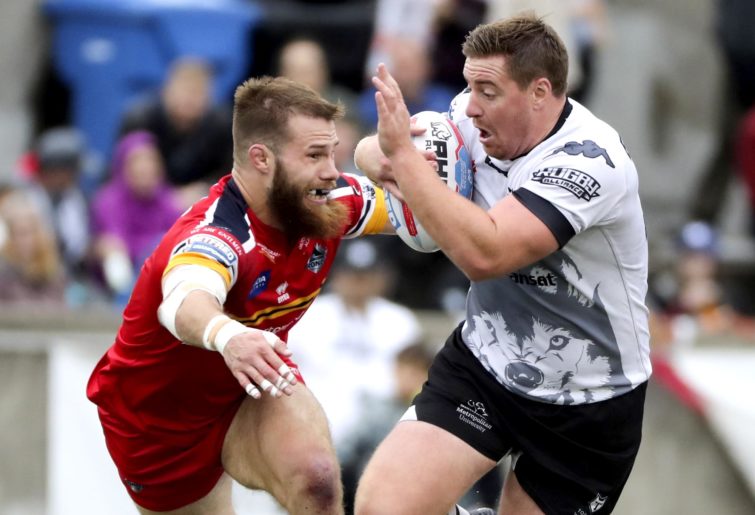
The Toronto Wolfpack have shown what’s possible (Richard Lautens/Toronto Star via Getty Images)
It was suggested Canada was an attractive market for rugby league as it possessed the most fans of the sport outside of Australia, New Zealand, the United Kingdom and France.
As a Canadian-Australian myself, I can confirm this is far from a large number and is a figure certainly gazumped by fans of the sport of rugby football in Hawaii, where the game has been played since the 19th century, back when the Hawaiian Islands were a country in their own right.
Similar to Toronto, and as seen executed in Super Rugby since the 1990s, Hawaii would play both its home and its away games in blocks. Like the Wolfpack, local tryouts could be held that, again, would certainly prove more attractive to Hawaiians than they did to Canadians.
Hawaii also offers up a field (Aloha Stadium), which is a similar size to Suncorp Stadium; an eight-hour flight time from Sydney that isn’t dissimilar to a trip from Toronto to Manchester; and only a four-hour difference in 24-hour time, meaning attractive scheduling for the NRL and no jet lag for travellers.
However, logistics these days are far less of a problem than they were the last time the NRL was eyeing expansion, and they will only continue getting easier. The University of Hawai’i continues to field over 20 different sports teams that play games as far away as the east coast of the United States, which is even further away than Australia is.
Eurasia’s Kontinental Hockey League also wrangles a similar problem, with teams in Beijing, Khabarovsk and Vladivostok regularly flying around 6500 kilometres to play teams in Helsinki, Minsk and Riga, doing so over ten time zones, representing a significant amount of jet lag.
Please note, reader, I realise there is a 99 per cent chance Hawaii is not your preferred expansion market for the NRL. I’m also not saying it is best or should be next. What I am saying is that it should be soon.
The NRL’s proposed expansion further into Queensland in the coming few years is an important step to fortify and capitalise on the sport’s strongest market, but down-the-line and medium-to-long-term growth should see the league go on the offensive rather than continue to play defence against other Australian sports.
Besides, if the Rugby Football League’s long-term projections come good, the NRL may soon be losing its own race rather than the sporting marathon being run in Australia.
Pre-coronavirus the Ottawa Aces were announced to be making their debut in League 1 next year, and while that now looks in doubt, the team has since been preparing as if it were going to be playing next week, recently signing hot English prospect Jake Moore.
The COVID-19 pandemic will soon be behind us, and rich Canadian, American and Australian businessmen will soon realise the amounts able to be made in British rugby league, potentially as a steppingstone to the licence to print money that is the big four North American leagues.
Despite the internal politics of the Super League, the Rugby Football League is just fine accepting the blue-chip American and Canadian dollars, and the NRL should be too.
If it’s not and continues down the line of another New Zealand team or the fruitless pie-in-the-sky idea of a club in one of the Pacific nations, it will only get left behind by the Super League, first in valuation and then in playing talent, and ultimately it will lose its status as the sport’s gold standard.
The NRL’s short-term future may indeed lie in Brisbane or Ipswich, but in the long term it lies in North America.
Although in its infancy, the war for that continent is already being lost.

































































































